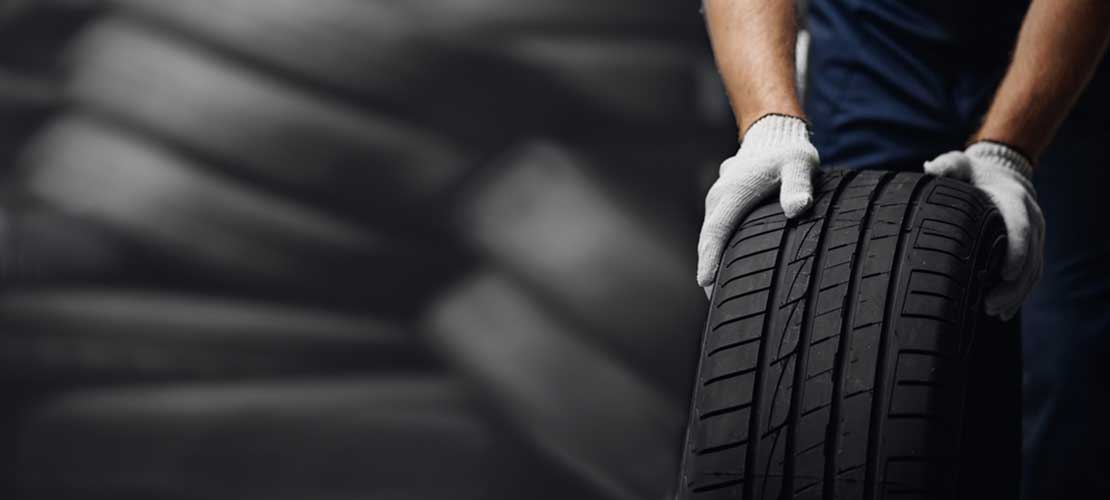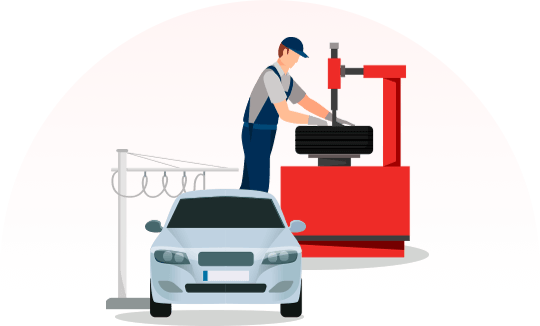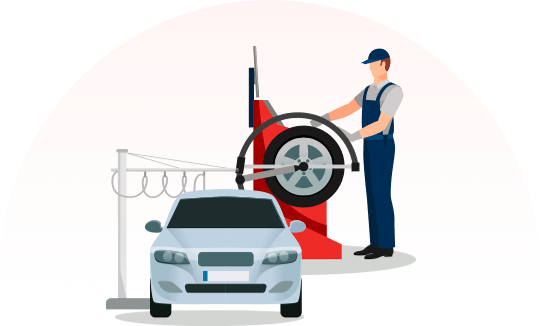- 7 Nov 2024
Reducing Car Tyre Noise: Tips and Tricks

Sources of tyre noise
Have you ever wondered where that constant hum comes from when you’re driving? Well, it’s not just your imagination – it’s your tyres! Tyre noise is mainly caused by the interaction between the tyre and the road surface. As your tyres roll along, they compress and release air, creating sound waves. The tread pattern also plays a big role in noise production, with some designs being noisier than others.
Factors affecting tyre noise levels
Several things can make your tyres noisier. The type of road surface is a big one – rough roads are usually louder than smooth ones. Your driving speed matters too; faster usually means noisier. The width and design of your tyres also influence noise levels. I once switched to wider tyres and was surprised by how much louder my car became!
Impact of tyre noise on driving experience
Tyre noise can really affect how enjoyable your drive is. Too much noise can be tiring, especially on long trips. It can also make it harder to hear important sounds like sirens or horns. Plus, if you’re trying to enjoy some music or chat with passengers, excessive tyre noise can be a real bother.
Choosing the Right Tyres for a Quieter Ride
Noise-reducing tyre technologies
Tyre makers have been working hard to make quieter tyres. Some use special tread patterns that reduce noise. Others use foam inserts inside the tyre to absorb sound. There are even tyres with “sound absorbing grooves” that help quiet things down. It’s pretty cool how much technology goes into something we often take for granted!
Tyre brands known for low noise levels
While I can’t endorse specific brands, many major tyre manufacturers now offer low-noise options. It’s worth doing some research or asking at your local tyre shop about which brands have a reputation for quieter performance. Remember, what works best can depend on your specific car and driving conditions.
Balancing noise reduction with other tyre performance factors
When choosing tyres, it’s important to consider more than just noise levels. You also need to think about things like grip, durability, and fuel efficiency. Sometimes, the quietest tyre might not be the best choice if it compromises on these other factors. It’s all about finding the right balance for your needs.
Proper Tyre Maintenance for Noise Reduction
Regular tyre rotation and balancing
Keeping your tyres in good shape can help reduce noise. Regular rotation helps them wear evenly, which can prevent noise-causing issues. Balancing is important too – unbalanced tyres can create a rhythmic noise that gets worse as you drive faster. I try to get my tyres rotated and balanced every 5,000 miles or so.
Maintaining correct tyre pressure
Proper tyre pressure is crucial for reducing noise. Under-inflated tyres can create more road contact and thus more noise. Over-inflated tyres can be noisy too. I always keep a tyre pressure gauge in my glove box and check my tyres monthly. It’s a simple habit that makes a big difference!
Addressing uneven tyre wear
If your tyres are wearing unevenly, they can become quite noisy. This might be due to alignment issues or problems with your suspension. If you notice your tyres wearing oddly, it’s best to get them checked out. Fixing the underlying issue can help reduce noise and extend the life of your tyres.
Driving Habits to Minimise Tyre Noise
Smooth acceleration and braking techniques
How you drive can affect tyre noise. Sudden acceleration or hard braking can increase noise levels. Try to accelerate and brake smoothly. Not only is it quieter, but it’s also better for your tyres and fuel efficiency. I find that planning ahead and anticipating stops helps me drive more smoothly.
Optimal speed ranges for noise reduction
Generally, tyre noise increases with speed. If you’re finding the noise bothersome, try slowing down a bit. Many tyres have an optimal speed range where they’re quietest. This varies depending on the tyre, but often it’s around 50-60 mph. Of course, always follow the speed limit!
Adjusting driving style for different road surfaces
Different road surfaces call for different driving techniques to minimize noise. On rough roads, slowing down can help. On wet roads, avoid sudden movements that could cause hydroplaning (and noise). I’ve found that being aware of the road surface and adjusting my driving accordingly makes for a quieter, more comfortable ride.
Vehicle Modifications to Reduce Tyre Noise
Improving vehicle suspension
Your car’s suspension can impact tyre noise. If it’s in poor condition, it might not be absorbing road vibrations effectively, leading to more noise. Upgrading or repairing your suspension can help. I once had my shocks replaced and was amazed at how much quieter my ride became!
Adding sound-dampening materials
You can reduce the tyre noise that makes it into your car’s cabin by adding sound-dampening materials. This might involve installing special mats in your car’s floor or adding insulation to the doors. It’s a bit of work, but it can make a big difference in how quiet your car feels inside.
Wheel well modifications
The wheel wells are where a lot of tyre noise enters your car. Some people add sound-absorbing materials to their wheel wells to help reduce this noise. There are also special wheel well liners available that can help. Just make sure any modifications don’t interfere with your wheels’ movement or your car’s safety features.
Understanding Road Conditions and Their Impact on Tyre Noise
Different road surfaces and their noise levels
Road surfaces can vary a lot in how much noise they create. Smooth asphalt is usually pretty quiet, while concrete with grooves can be quite noisy. Rough or damaged roads tend to be the loudest. I’ve noticed that newly paved roads are often much quieter than older ones.
Weather conditions affecting tyre noise
Weather can affect tyre noise too. Wet roads are often noisier than dry ones. In very hot weather, the road surface can become softer, which might change the noise level. Cold weather can make your tyres stiffer, potentially increasing noise. It’s interesting how the seasons can change the sound of your drive!
Strategies for dealing with noisy road conditions
When you can’t avoid noisy roads, there are still things you can do. Slowing down often helps. You might also try adjusting your route to avoid particularly noisy stretches of road. If you frequently drive on noisy roads, it might be worth investing in tyres specifically designed for those conditions.
Legal and Environmental Considerations
Tyre noise regulations and standards
Did you know there are actually laws about how noisy tyres can be? In many countries, tyres have to meet certain noise standards to be sold. These regulations are helping to make our roads quieter overall. When buying new tyres, you might see noise ratings on the label – lower numbers mean quieter tyres.
Environmental impact of tyre noise
Tyre noise isn’t just annoying – it’s also a form of pollution. It can disturb wildlife and affect the quality of life for people living near busy roads. By choosing quieter tyres and driving mindfully, we can all do our part to reduce noise pollution.
Future trends in tyre noise reduction
The future of tyre noise reduction looks promising! Tyre makers are constantly working on new technologies to make tyres quieter. There’s also research into “smart” road surfaces that could help reduce noise. As electric cars become more common, tyre noise might become even more noticeable (since electric motors are so quiet), so I expect we’ll see even more focus on this in the coming years.

 Google Review
Google Review 




 Google Review
Google Review
 Digitally enhanced by
Digitally enhanced by